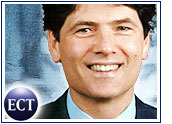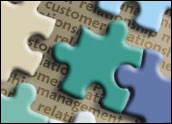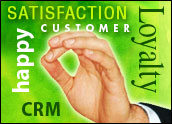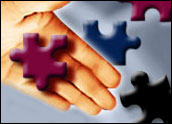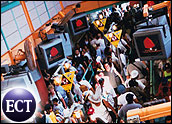
Long known as a technology and hardware provider, Unisys has pushed to diversify, joining the ranks of large systems integrators just when many companies are drawn to the simple, low-risk offerings of hosted solutions providers. Unisys, however, sees that trend as temporary, and its CRM leaders feel confident that the firm’s holistic, even complex business-intelligence overlays will put it at the top of a competitive set.
CRM Buyer recently had a discussion with two executives responsible for CRM at Unisys. Rich Jaso is vice president of the North America CRM practice, and Steve Olyha is global head of Unisys’s CRM practice.
CRM Buyer: How has Unisys overlaid its CRM solution with analytics? What are the specific benefits for Unisys clients?
Rich Jaso: What we’re finding is that every CRM engagement we’re involved with now involves analysis. Most companies have established some sort of CRM and now are focused on delivering on the promise of CRM. They’re collecting a huge amount of data in sales, service and marketing. The BI analytics tool sets available now — if companies understand which data really drives their business — overlap some modeling and predictive capabilities and make CRM much more holistic.
Some of the benefits in the engagements we’re involved in are enhanced customer targeting, enhanced sales follow up, and in customer behavior, a view into where the company is touching the customer across all components of the business. That produces enhanced retention as a result.
Steve Olyha: One of the core strategies and operating principles we bring to market is to work with much more of a value chain. We have to tie sales force automation back into demand planning, for example. We are not just offering analysis for a point solution but for a substantive change that takes place across the value chain — global CRM, ERP, the supply chain.
It’s really hard to integrate those systems, but integration isn’t enough. I don’t think it’s even the biggest challenge. The biggest challenge is organizational change management. You have to get people to think differently. The technology never fails. It just takes money and people with the ability to drive change. You have to ask the question, “What’s the business problem to solve?”
CRM Buyer: What metrics are Unisys clients using to measure the benefits in marketing, sales and service of the evolving use of business intelligence?
Jaso: In the financial services industry, banks are trying to get a 360-degree view of their customers. These are the key metrics they focus on now because they’re obvious and they get immediate benefits: customer cross-sell and upsell; customer retention; customer acquisition, that is, how fast, how many and in what segments; channel profit; and segment profit. We’re finding that marketing dollars are being redirected from a very generic approach to the market.
Olyha: For every industry and every business problem, the answer is going to be different.
Jaso: The market is beginning to understand a much more fact-based approach to CRM. It is beginning to accept statistically valid recommendations based on data collected from various industry groups, and it is asking for benchmarks tied to best practices as opposed to outcomes of workflows or taking something that worked once someplace. More validation is a pretty key occurrence.
CRM Buyer: What other technologies are being laid upon Unisys’s CRM solution? Voice over Internet protocol? Digital recording? Data transmission to mobile devices such as laptops and PDAs?
Olyha: There is a lot of excitement in call centers to move to true digital technologies. Quality issue and price points associated with voice over Internet have improved such that you are seeing voice over Internet applied across the call center industry. It gives them the immediate ability to redirect calls to high-service representatives. It also allows people to work at home.
We also see a lot of activity going on with improving the experience with digital voice recording, to truly allow a quality assurance person to be able to grab conversations, assess them, save them and be able to use them for ongoing training purposes. Digital technologies are doing a nice job of improving that whole experience.
The Salesforce.coms of this world offer a very interesting CRM starting point on laptops and PDAs. I see them as an hors d’oeuvre CRM for companies that want to get into CRM quickly and then can look toward a much fuller solution.
CRM Buyer: How is Unisys preparing for the flow of data from increasingly popular technologies like RFID into its CRM application?
Olyha: We at Unisys have been involved with RFID on a number of projects on a security basis for a number of years. It’s among a couple of areas where we’re investing.
For example, in the pharmaceutical industry, to deliver safe and effective drugs to consumers, we must identify counterfeit drugs. We tag supply and very quickly integrate that into the CRM solution. If there’s a problem, we can immediately trace it back and immediately communicate with call centers and the sales force [to let consumers and buyers know of the problem].

